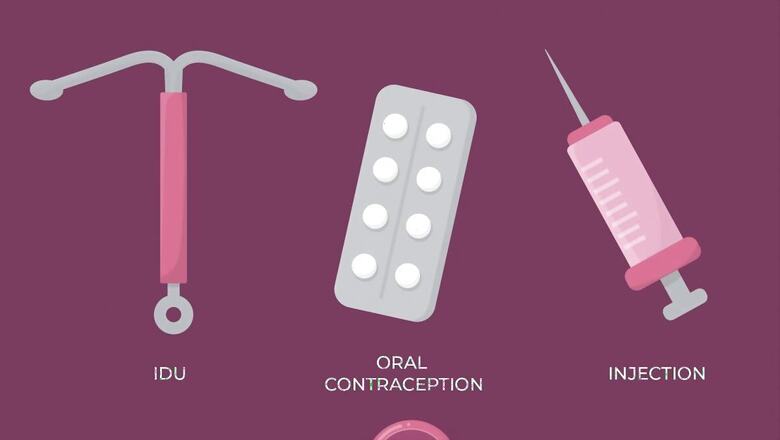
49
views
views
Dr Teji Dawane, Consultant-Obstretics & Gynaecology explains the different contraception methods available for both men and women
Birth control, also known as contraception and fertility control, is the use of methods or devices to prevent unwanted pregnancy. There are various methods of contraception for both men and women.
- Sterilization, while highly effective, is not usually reversible. Surgical sterilization involves disconnecting the tubes and tying the tubes so that the egg and the sperm don’t meet. There is often a misconception about problems following tubectomy, but it is better to discuss with your gynecologist regarding the procedure for clear understanding.
- Hormonal contraception is available in a number of different forms, including oral pills, implant under the skin, injections, patches, intrauterine devices and a vaginal ring.
- There are two types of oral birth control pills, the combined oral contraception (which contain both estrogen and a progestin) and the progesterone-only pills (sometimes called mini pills). They prevent fertilization mainly by inhibiting ovulation and thickening cervical mucus, and thus decrease implantation.
- Combined hormonal contraceptives are associated with a slightly increased risk of venous and arterial blood clots. Due to this risk, it is recommended that you talk to your gynecologist for assessing your risk profile to check whether it would be the right fit for you.
- Progestin-only pills, injections and intrauterine devices are not associated with an increased risk of blood clots. Progestin-only pills can be used by breastfeeding women as well as they do not affect milk production. Irregular bleeding, however may occur with these.
- Barrier contraceptives are devices that attempt to prevent pregnancy by physically preventing sperm from entering the uterus. They include male condoms, female condoms with spermicide. Condoms have the additional benefit of preventing the spread of some sexually transmitted infections such as HIV/AIDS.
- The current intrauterine devices (IUD) are small devices, often T – shaped, containing either copper or progestin hormone, which are inserted into the uterus. They are one of the most effective form of long acting reversible contraception. Once removed, fertility returns to normal immediately.
- Emergency contraceptive methods are medications (sometimes misleadingly referred to as “morning-after pills”) or devices used after unprotected sexual intercourse with the hope of preventing pregnancy. Emergency contraceptives are often used or given only as an emergency where-in any other regular contraception has failed. It is not to be used as a routine contraceptive pill.Though it is considered as an emergency contraceptive, there are still chances of pregnancy. They have high doses of hormones and are not recommended as a routine use.
Hence, it is imperative to have a transparent discussion with your gynecologist regarding your requirements and which would be the best for you among the basket of options available.
Read all the Latest Lifestyle News here













Comments
0 comment